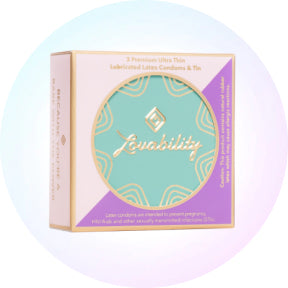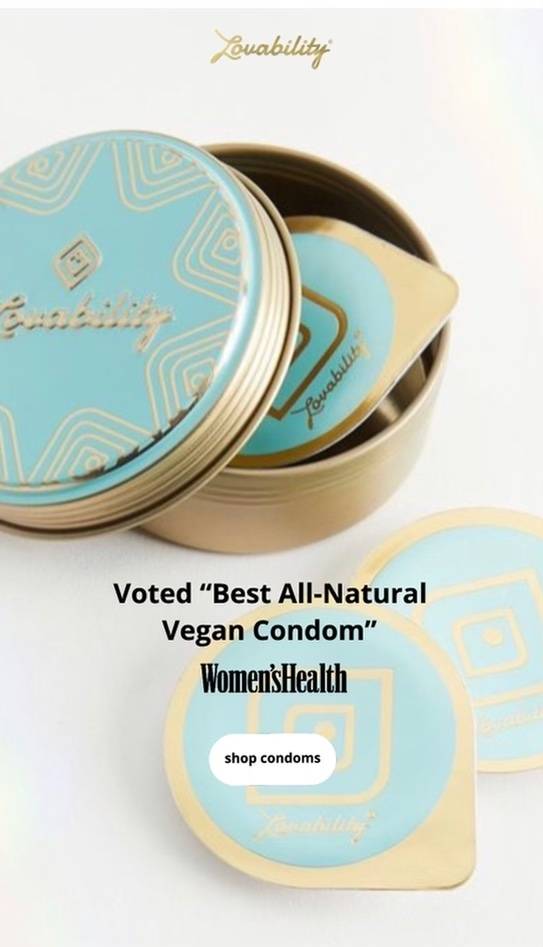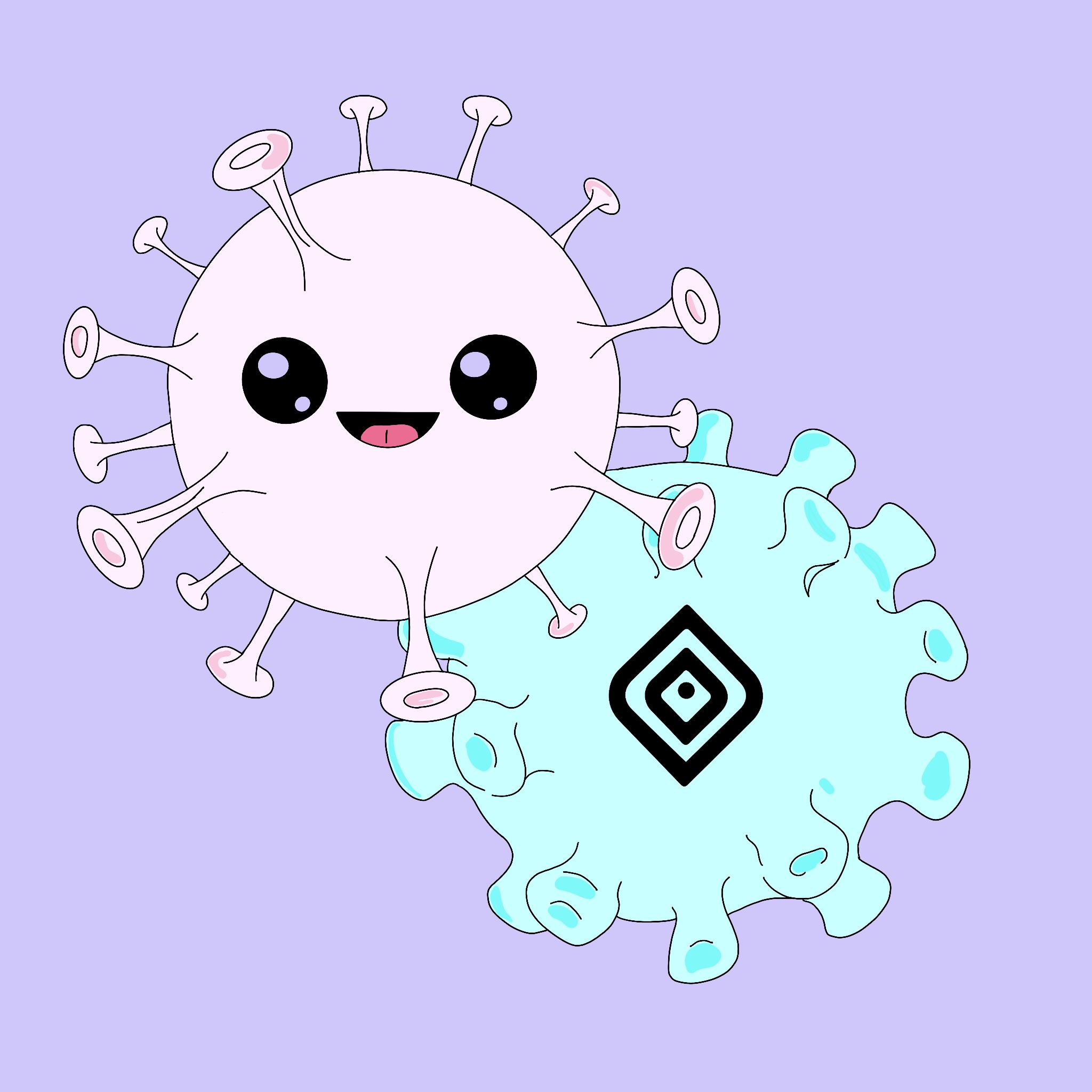Babe With The Power — Emily Blackwood
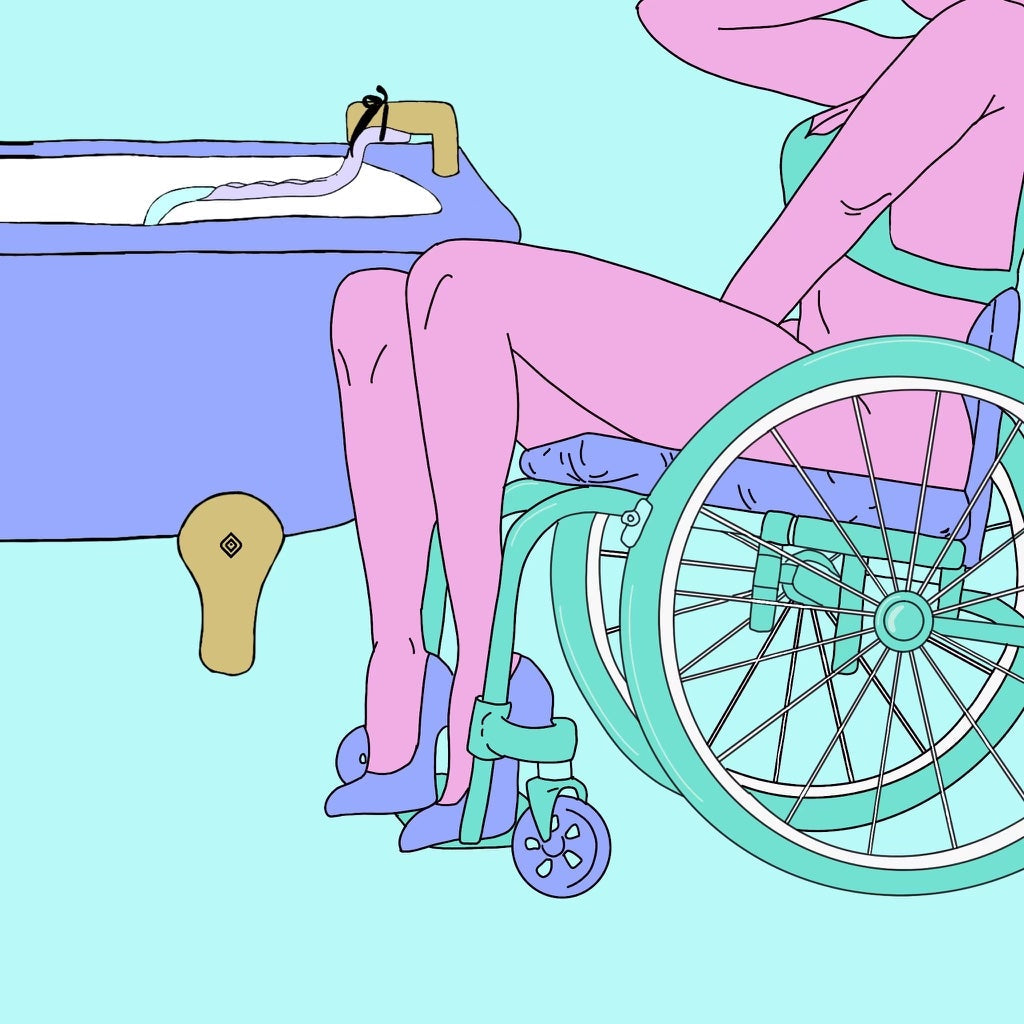
Meet The World's Most Disability-Friendly Sex Toy
Engaging in sexual activity is an essential part of every person's quality of life, not just the able-bodied. Typical vibrators and dildos require some level of physical dexterity and manual strength that not all of us possess or desire. Meet the WaterSlyde, the world's most disability-friendly sex toy.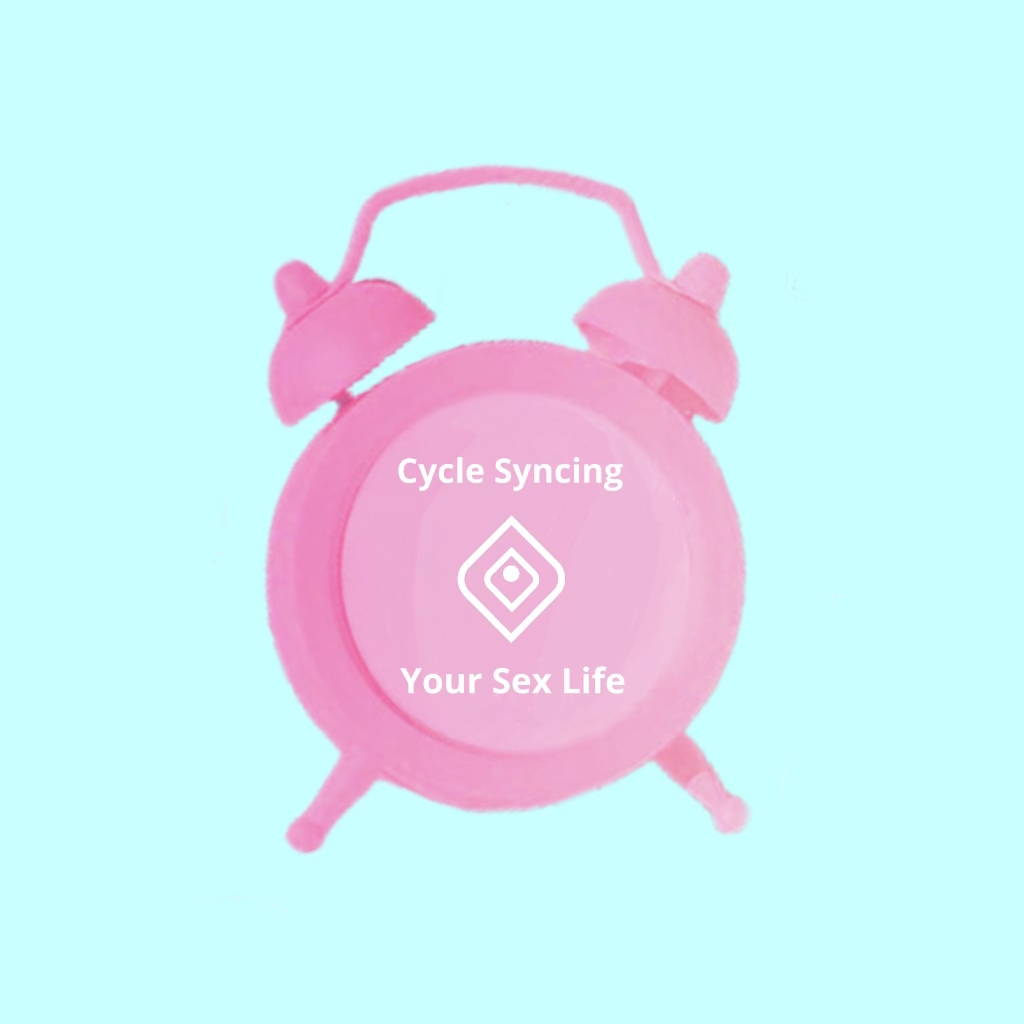
Cycle Syncing Your Sex Life: How Your Period Influences Arousal, Desire And More
Cycle syncing tailors your lifestyle around the 4 natural phases of your menstrual cycle to work with your body rather than against it. Understanding how your hormones affect your physical health, emotions, and energy allows you to make the most out of each phase.
Are Sex Toys Sustainable? How To Make Sure Your Pleasure Products Are Eco-Friendly!
What makes a sex toy or pleasure product sustainable and eco-friendly? We recommend you look for three things above all else...
7 Genius Ways To Play With Lube
If you're a part of the Lovability fam, then you know we're BIG fans of lube. While we'll sing lube's praises for penetration all day, it's not the only route to Pleasuretown you can take. There are some other, just as fun ways to experiment with lube that you might have yet to explore.
So we picked the brains of some of the smartest pleasure educators around, and they gave us the down-low on seven of their favorite, creative ways to use lube.
#1 Moisturizer For Your Lips

No, not those lips (that's pretty obvious, right?), but if your other puckers are in need of a little moisture, Lovability Co-Founder and President, WaterSlyde inventor, and world-renowned pleasure queen Maureen Pollack has the best trick.
“I use our HALLELUBEYAH Organic Aloe lube as lip gloss,” she says with a sly smile. “I like to say that 'our lube is good for all your lips.' Try saturating your lips with lube. It’s seriously HOT. And because it's organic and super clean, I have no worries about doing mouth stuff after our lube has been applied.”
Another little secret Pollack shared. "Our Bomb Balm Arousal Balm has a plumping element to it, so I get major compliments when I use it on my lips. And I'm always like, 'Little do you know what's going on.'"
#2 Spice Up Your Couples' Massage

A massage is a great way to relax and get in the mood. According to Nina Nguyen, a Berlin-based sex educator and co-founder of Fraulila.de, an LGBTQ+ platform in Germany, the only thing that would make massaging your partner's body even hotter is wetting your hands with a little lube.
"People forget lube isn't only for penetration," Nguyen says. "It has multiple uses and comes in many different forms. Although the standard water and silicone-based are perfect for sex, you can get lubricants that are great for massages as well.
"Any lube made for vaginal and/or anal use will have the oiliness needed for an awesome massage. Then you can ease into sex much better, which is more pleasurable for both partners."
#3 Spice It Up Even Further

Wanna really experience all the delicious magic lube can offer? Sex expert and educator for Bedbible Rachel Worthington invites you to take your massage a little further south.
"If you’re feeling a bit adventurous, you can also try a perineal massage," Worthington says. "Just add a dollop of lube to your fingers, warm it up a bit and then gently massage the area just below the anus. In penis owners, massaging this area can actually indirectly stimulate the prostate, but it can also feel super pleasurable for vulva owners, too."
When it comes to what kind of lube to use, Worthington says she always opts for oil-based as "they are long-lasting and often nourish the skin." Just be sure to avoid oils when using condoms or sex toys, as they can cause damage. If you're playing with a vibrator or using a condom, water-based lube is best.
#4 Upgrade Your Shower Sex

Shower sex is one of those things that's always great in theory. But water zaps the moisture out of your skin, which makes penetration really uncomfortable and even painful. Nguyen says that reaching for the lube is the answer.
"Most people have issues with lubrication in showers, jacuzzis, and tubs," she says. "Here is the best solution: you need silicone-based lube as it's water resistant and lasts longer than ordinary lube. Some stores carry lubes made specifically for underwater sex in any occasion, which can come in handy in other situations like naturist/nudist beaches, private swimming pools, and so on."
That's right, lube may just be the thing to make all your exhibitionist fantasies come true.
#5 Give Your Nips Some Love

Who doesn't love a little nipple play? Any fans of this kind of foreplay should take Worthington's advice and introduce the girls to lube.
"If you have sensitive nipples and enjoy nipple stimulation during foreplay and sex, try dabbing a small amount on each nipple," she says. "Then have your partner stroke, squeeze or flick your nipples, and every sensation will suddenly feel even more intense. Plus, it will have a delightfully cooling effect, which can be intensified even more by gently blowing on the nipples."
#6 Try A 'BUSENFICK'

Our boobs can feel so much more than we give them credit for. If you haven't experimented with them beyond the casual groping, erotic therapist and sensual massage educator Jazmin Light is about to rock your world.
"One way people can use lube, especially if they are into safe sex, is for a 'Busenfick,' as they call it in German," she says. "Boobfuck would be the literal translation."
Don't be terrified of the brass, unromantic language. The actual act is much more inviting.
"Here's how it goes: you sensually smear the lube on and in between your breasts and on his shaft. And then, like a dolphin (male on his back, girl on top), glide your chest up and down on his shaft."
#7 Get Your Hands Dirty

Getting a little handsy is always fun, and licensed marriage and family therapist Shadeen Francis says you can make it even more fun with some lube. Just a warning: this can get a little messy.
"Any scratching during sex should be intentional and consensual," Francis says. "So I like to suggest that before any hand play, not just add a little lube to the area, but to put a generous squeeze of lube in their palms. Rub it into both sides of your hands, like you would if you were washing them. You can get some surprising sensations from the back side of your hand or between your fingers."
_____________________________
As you can see, the sky is truly the limit when it comes to what lube can do for you. So the next time you're feeling frisky in the bedroom, grab a bottle of HALLELUBEYAH ORGANIC aloe-based lube and see what kind of (very fun) trouble you can get into.
About The Author
Emily Blackwood is a freelance journalist committed to answering the plaguing question of what makes us truly happy. Turns out, it's a lot. Her work has been published in SELF, HuffPost, and YourTango. You can learn more here.
___________________________________________________
Medical Disclaimer: The information provided here is intended for educational and informative purposes only and is not intended to serve as medical or professional advice. If you have any concerns or questions about your health, you should always consult with a physician or other health-care professional.
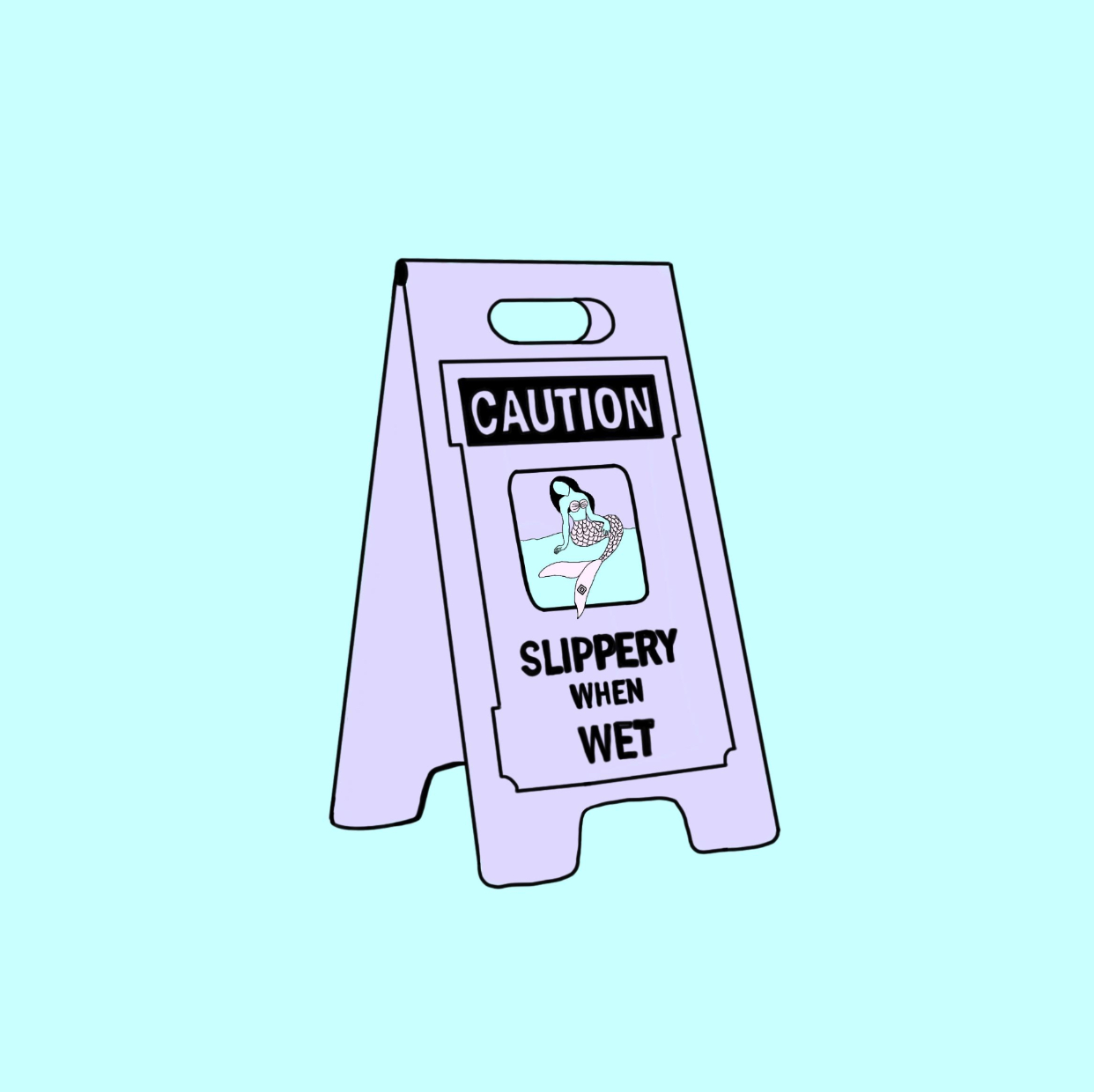
So What Do Lubricants Actually Do?
There's no shame in the lube game. It's quite literally a girl's best friend. From reducing friction to enhancing pleasure, everyone should have a tube of their favorite lube on hand for when things start to heat up. Here's everything you need to know about lube, so you can make an informed decision about how (and when) to use it.Everything You Need To Know About Getting Wet
Getting wet is as normal and healthy as getting an erection. And yet, wetness is not openly discussed. Let's dispel common myths around natural lubrication (or lack thereof) and embrace the fact that our bodies are doing exactly what they are supposed to.
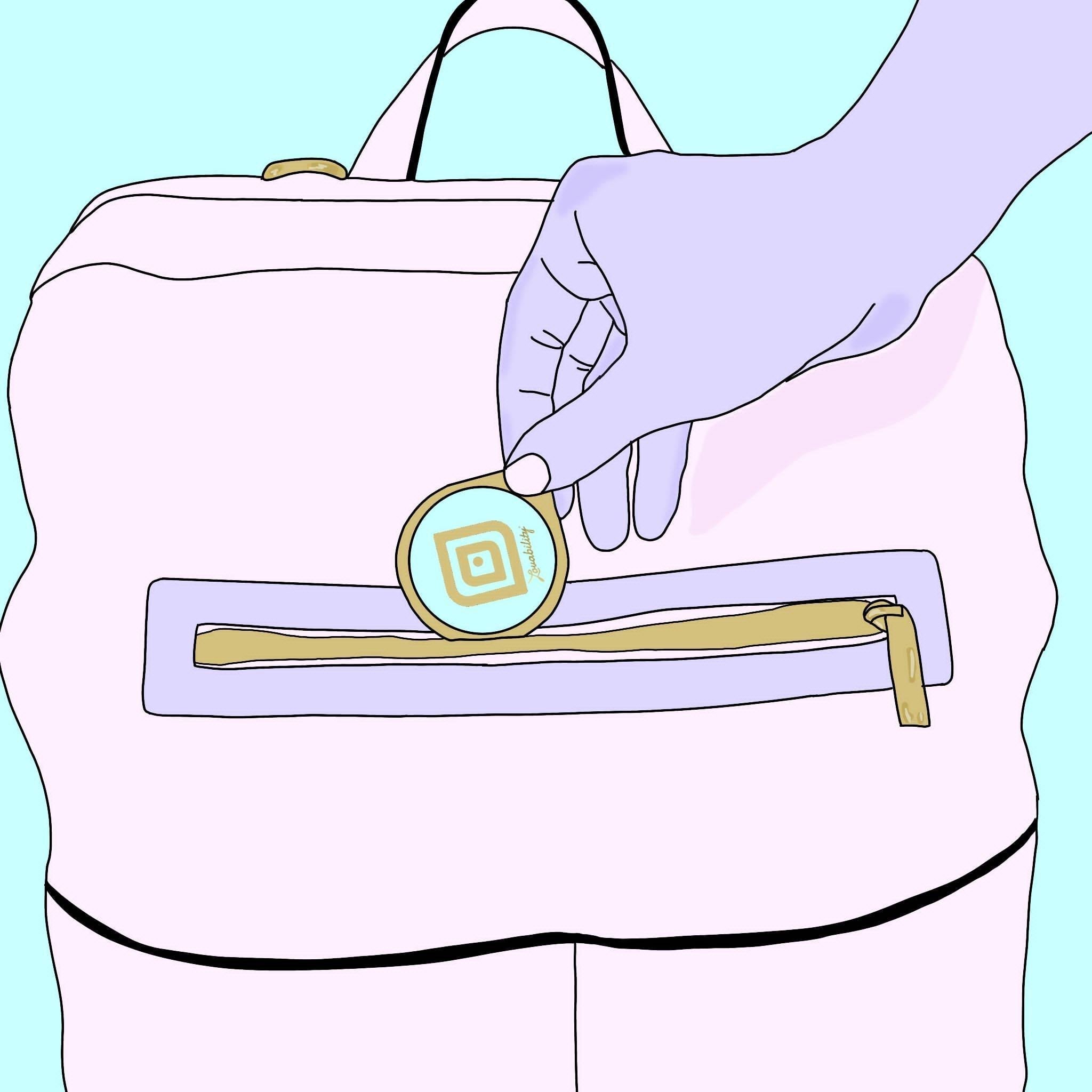
How To (Safely) Make The Most Of Every Intimate Encounter You'll Have In College
Everyone knows college is an era of experimentation — romance included. Before you start exploring your options, here are a few things to keep in mind...
How To Access Every Kind Of Birth Control On Campus
Between internships, classes, and making all sorts of grandiose decisions about your future, babies are probably the last thing you have on the brain. But if you’re sexually active (and not trying to become a parent anytime soon), then birth control should definitely be on your radar.
Though it feels like your campus health center is only equipped to handle the occasional cold or flu, they can actually hook you up with some pretty sweet birth control options, too. And whether they advertise it, many colleges offer free or low-cost birth control to students—even if you don't have insurance.

So if you’re sexually active or think you might want to be, consider this your birth control roadmap, guiding you to all the resources you need to make informed decisions about your sexual health.
Contraceptives Do Not Prevent STIs
Before we dive in, remember that contraceptives are designed to keep an unwanted pregnancy at bay but they will not protect you from STIs. Condoms are the only form of birth control that reduce the risk of pregnancy and STIs. And while condoms are highly effective at protecting against most STIs (such as chlamydia and gonorrhea), they do not protect you from all STIs (for example, herpes, genital warts, and syphilis can spread from skin-to-skin contact). So wrap it up, babe, and get familiar with how to protect against, test for, and treat STIs.
Types Of Birth Control (And How To Find It)
The landscape of birth control has changed a lot in recent years, with new choices becoming available and old favorites becoming easier to access. But as much as science has advanced the birth control buffet, one v-serious caveat remains: no method is 100% effective.
Risk of pregnancy and STIs can never be completely eliminated when it comes to sex. But using birth control can help reduce the likelihood.
There are dozens of contraceptives out there, but they tend to fall into two camps:
- Hormonal: Methods that rely on shifting your hormones to prevent pregnancy.
- Non-Hormonal: Methods that physically block sperm from getting to your eggs.
The kind of birth control you ultimately choose is a very personal decision, and there are pros and cons to each method. All will require a prescription from a doctor, which you can visit at:
- Your campus health center
- A free or low-cost clinic like Planned Parenthood
- Your primary care physician or your OBGYN, if you have one
- Online via a virtual birth control service like Nurx.
Hormonal Birth Control
This kind of contraceptive uses synthetically made hormones to prevent your ovaries from releasing eggs. Different methods do this in different ways, but no eggs = no pregnancy.
While hormonal birth control is pretty effective at keeping that bun out of the oven, it doesn't protect against STIs, and it does come with a lot of unfortunately unpredictable side effects.

Some people feel totally fine, watch their stubborn acne clear up, and enjoy cramp-free periods. Others have to deal with totally unpredictable mood swings, weight fluctuations, and real nasty breakouts. You never know how your body will react to synthetic hormones until you try them.
1. The Pill
Birth control pills are probably the most popular form of hormonal birth control, and for good reason. They're 99% effective in preventing pregnancy—if you use them perfectly.
Because accidentally forgetting your BC pills in your dorm room when you leave for Spring Break is wayyyy too easy, in reality, the pill is more like 91% effective, which is still pretty good.
Pros
- Cheap. The pill can cost anywhere from$0 to $50, depending on your insurance. And if you don’t have insurance, many health centers offer sliding-scale payment options, so you only pay what you can afford.
- Effective. Even if you're prone to forgetting a pill every now and then, it's still over 90% effective.
- Possibly wonderful side effects. Some people report skin clearing, bloat-reducing, and period-regulating benefits from the pill.
Cons
- Possible side effects from hell. Moodiness, weight fluctuations, unpredictable bleeds—the list goes on. Some people's bodies are more sensitive to synthetic hormones than others.
- Easy to forget. Not great for people who are REALLY bad at forgetting to take medicine regularly.
2. The Patch
Not a fan of taking pills? Meet the patch, a small, beige adhesive that you stick on your skin like a Band-Aid. It releases a steady stream of synthetic hormones into your system, just like the pill. Only instead of taking it every day, you leave it on for a week at a time, then replace it with a new one.
The patch is99% effective if—BIG if—you remember to change your patch weekly and make sure it's on correctly.
Pros
- Less terrifying side effects. Nausea and headaches are common, but they don't happen to everyone and usually resolve themselves in at least three months.
- Less frequent reminders. No daily or even weekly pill to take. You just have to remember to change your patch once a week.
Cons
- Not great for water-lovers. Because it can easily fall off in the water, it's not an ideal method for regular swimmers. Some brands of the patch can be used to skip your period altogether.
- More expensive. The patch is a little pricier, ranging from $0 to $150 depending on insurance. Most insurance plans provide the patch for free, but you still need a prescription from a doctor.
3. The Ring
The ring is a small, bendy plastic ring that you insert into your vagina. Once it's in there, it releases a low dose of hormones every day to prevent pregnancy. That's right, friend—no daily or weekly reminders needed.
Currently, two birth control rings exist:
- NuvaRing: which lasts up to five weeks and can be used to safely skip your visit with Auntie Flo.
- Annovera: which lasts for a whole freakin' year—but you have to take it out every three weeks for seven days so Auntie Flo can come to town.
Pros
- Super-effective. The ring is 99% effective when used perfectly (notice a pattern here?) and 91% effective if you forget to take it out every once in a while.
- Less maintenance. You get to worry about your birth control even LESS with only monthly reminders, depending on which ring you choose.
Cons
- Need time to get used to it. Side effects are still possible, and your body may take a few months to adjust.
- Expensive. It also teeters on the very expensive side, costing up to $2,200 for the Annovera. NuvaRing is more in the $200 range, and some are totally free with insurance.
4. The Shot
The Shot (a.k.a Depo-Provera) is a once-every-three-months injection of a synthetic hormone that thickens the cervical mucus to prevent pregnancy. What makes the shot a real star—other than the fact that you can put your BC on a quarterly rotation—is its effectiveness.
Even factoring in people who forget to take their shots on time, the shot is still about 94% effective (and 99% effective when used perfectly).
Pros
- It's uber-convenient (not to mention private). You only have to think about it four times a year, and because it's done in the privacy of a doctor's office, there's no hard evidence that you're on birth control for anyone to find.
- You don't have to worry about messing up. Because the shot is given to you by a professional, there's no way to screw it up.
- You'll get your period less often (and after a year, maybe never). And they'll be much lighter when you do get them.
- It has other health benefits. Beyond preventing pregnancy, the shot can also protect you from uterine cancer and ectopic pregnancies.
Cons
- Some not-so-great side effects. Most have to do with your period, like spotting and bleeding for longer, but some people also experience weight gain, headaches, and even depression.
- You have to wait 10 months to get pregnant after stopping. When and if you are ready to have kids, you'll have to wait a while after your last shot before trying to conceive.
- It's expensive. Some health insurance covers it for free, but if not, it can be up to $250 per shot.
5. The Implant
We've arrived at the level of get-it-and-forget-it birth control babes. The implant is a small rod (about the size of a matchstick) that's inserted under the skin of your upper arm. It releases progestin, which thickens the cervical mucus and prevents ovulation, for up to five, yes FIVE, freakin' years.
Can I get a hallelujah?

Because there is literally no room for user error, the implant is about 99% effective—the most foolproof method on this list.
Pros
- It's long-acting and low-maintenance. You get it once and don't have to worry about it for years.
- Respects your privacy (and your time). No condom wrappers or birth control pill packets to hide away—and no monthly reminders to help you forget.
- Your period may become lighter or disappear altogether. Bonus!
Cons
- More doctor visits. It has to be inserted and removed by a professional (ouch).
- You may start spotting. Irregular bleeding is suuuuper common within the first year, as are headaches, nausea, and breast pain,
- It's pricey. Getting the implant can cost up to $1,300, and removing it is around $300. BUT most insurance lowers the cost—or covers it completely.
Pros
- It's a backup for your backup. If you miss a birth control pill, you can make sure you’re always covered.
- The one-time cost is relatively inexpensive. ECs with levonorgestrel cost around $40, while pills with ulipristal acetate are a little pricier at $50.
- It's super convenient to grab when you're in a pinch. Just make a quick appointment with your doc or swing by the store.
Cons
- It doesn't prevent pregnancy as well as other contraceptives. EC is not a replacement for every day pregnancy prevention.
- You may experience some not-so-fun side effects. Spotting or nausea is temporary but common.
- It may not work for everyone. Levonorgestrel pills are less effective if you weigh over 165 pounds, and ulipristal acetate pills are less effective if you weigh over 195 pounds.
Non-Hormonal Birth Control
Now, if you're wary of putting any more hormones into your body than you have to, there are a couple of non-hormonal methods available to you. They just may require a little more vigilance on your part.
1. Barrier Methods
Most barrier methods work by physically blocking sperm from getting to the egg. They're popular because they can be used on demand (no need to plan ahead), and they don't have any hormones. You can grab most of these for free or at super low cost at your campus health center.
Barrier methods include:
- Condoms: They come in male and female/internal varieties, and you can often find them for free at your local campus health center. Just remember: condoms are only effective when used correctly, so make sure you know how to put them on (and take them off) before things get heated. And yes, condoms reduce the risk of both pregnancy and STIs.
- Diaphragms: This domed cup is inserted into the vagina before sex and covers the cervix to prevent sperm from getting through.
- Spermicide: This is a chemical that kills sperm on contact. It comes in foam, film, gel, suppositories, and creams, and you can find it over the counter at your local drugstore. Spermicide must be used with another barrier method to be effective. Just don't use it with the sponge as that already contains a spermicide.
- Sponge: The sponge is a small, disk-shaped piece of soft plastic with a spermicide in it. It's inserted into the vagina before sex and blocks sperm from getting to the egg. You can find it over the counter at your local drug store or online.
- Cervical cap: Like the diaphragm, this small cup is inserted into the vagina to cover the cervix and block sperm from reaching the egg. It needs to be used with spermicide, and it must be fitted by a healthcare professional.
Because they require some attention before, during and after sex, barrier methods are not quite as reliable as hormonal birth control options. If you choose to use barrier methods, understand that there's still a risk of pregnancy - and only condoms reduce the risk of transmitting STIs.
2. The Copper IUD
As it turns out, synthetic hormones aren't the only route to (more effective) pregnancy prevention. IUDs (or intrauterine devices) are small, T-shaped pieces of soft, flexible plastic that are inserted into the uterus and wrapped in copper.
Here's some weird science for ya: copper is toxic to sperm. So when you get a copper IUD, you can enjoy a whopping 99% effective rate for up to 12 years.

Outside of the copper armor, there are some hormonal IUD options. They work by releasing a small amount of progestin (a synthetic hormone) into your body, which thickens the cervical mucus to block sperm. They're just as effective as their copper-wielding counterparts, except they only last from 3 to 7 years, depending on which brand you get.
3. Fertility Awareness
And finally, we've come to the most "au naturel" of the birth control methods: fertility awareness.
Rather than implanting or inserting anything, you simply track your ovulation via basal body temperature and cervical mucus (usually using an app designed for FAM) to determine when you're most likely to get pregnant. When your most fertile days arrive, you either use a barrier method or avoid getting frisky altogether.
The most important thing to keep in mind is that FAM is about 76 to 88% effective. This is mostly due to human error (we're forgetful, sometimes messy creatures), so if you're looking for something with a higher success rate, this may not be the best method for you.
Choosing The Right Birth Control For You
The actual process of choosing birth control can feel kind of like a dark, mysterious labyrinth. And navigating that labyrinth is all about getting in tune with what works best for you in this season of life.
Set yourself up for sexual wellness success by being 100% honest about your birth control needs and preferences. Do you want something long-lasting, or are you okay with popping a pill every day? Can you handle remembering to take/change/insert something before sex, or do you need something that's more low-maintenance?
Your answers to these questions will help you zero in on the best contraception option for you and your body.

No method of birth control is perfect—or permanent. So whether you're just starting to have sex or you've been at it for years, make sure you revisit your contraception choices on a regular basis. As your body changes and your life circumstances evolve, so too should your birth control method.
About The Author
Emily Blackwood is a freelance journalist committed to answering the plaguing question of what makes us truly happy. Turns out, it's a lot. Her work has been published in SELF, HuffPost, and YourTango. You can learn more here.
______________________________________________________________
Medical Disclaimer: The information provided here is intended for educational and informative purposes only and is not intended to serve as medical or professional advice. If you have any concerns or questions about your health, you should always consult with a physician or other healthcare professional. e.g. Planned Parenthood, CAPS, etc.

The Difference Between Safe Sex And Safer Sex
How can you make sure you're having the safest (and best) sex possible? Let's break it down—starting with the difference between safe and safer sex.


